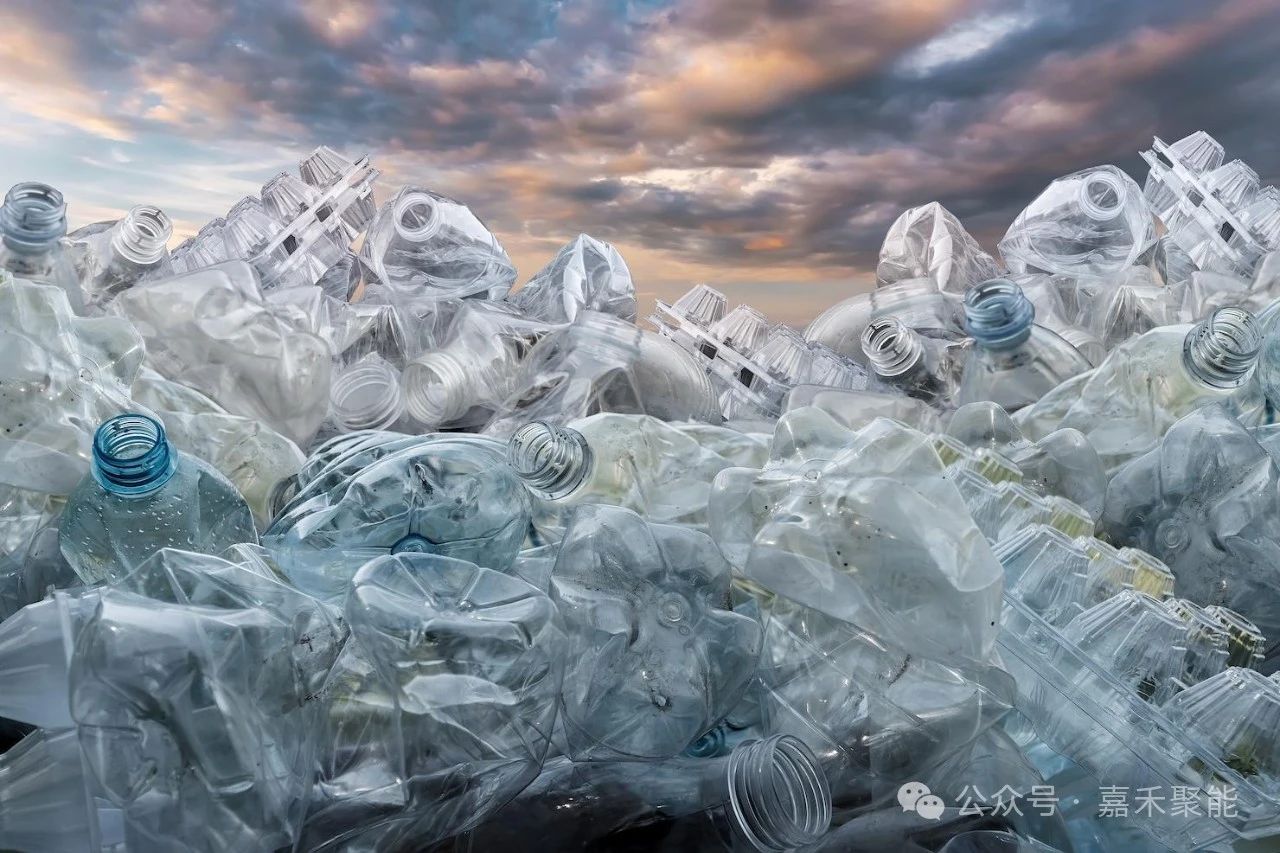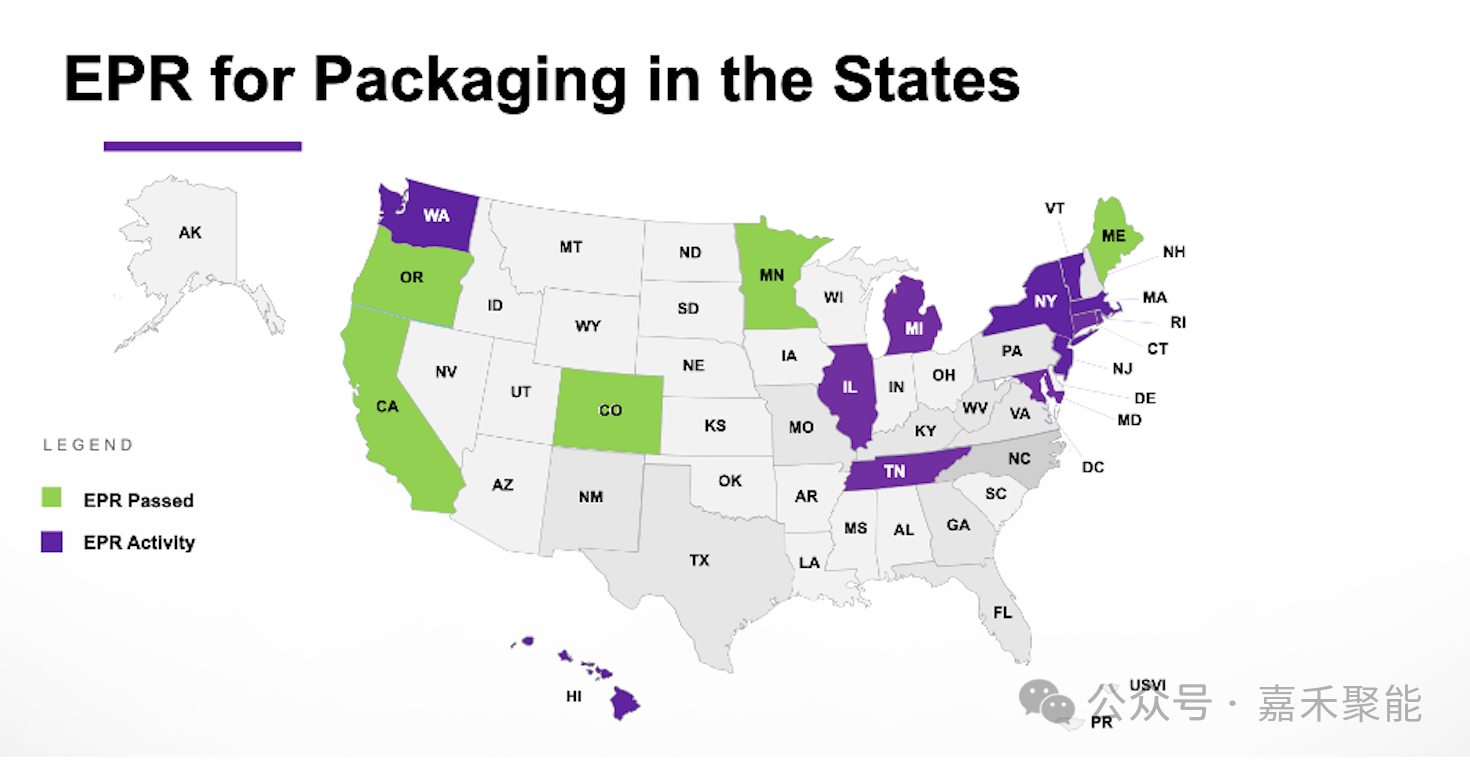Copyright © 2023. All rights reserved Green Harvest Energy Ltd.
Lize SOHO, Building 1, Yard 20, Lize Road, Fengtai District, Beijing
Telephone:15611817788 Zip code:100073 Email:ghe@ghe-cn.com
 Release time:2024-07-19
Release time:2024-07-19
 Number of views:
number
Number of views:
number
Multiple states have enacted new regulations making producers liable for recycling.

The first Extended Producer Responsibility law in the U.S., requiring packaging producers to contribute to the costs of recycling their materials, takes effect in Oregon on July 1, 2025.
In the coming years multiple states will implement such regulations: Colorado and Maine’s EPR laws go into effect in 2026, followed by California’s law in 2027 and Minnesota’s in 2029. Meanwhile, close to a dozen other states have EPR bills in the works.
Paper and packaging producers with sales in Oregon must join a producer responsibility organization, or PRO. The voluntary registration deadline set by Oregon’s PRO, the Circular Action Alliance (CAA), was July 1. CAA, a nonprofit, producer-led organization established by 20 food, beverage and consumer goods companies, is also the designated PRO under Colorado’s and California’s laws.
Producers need to register so that CAA can develop accurate and fair fee schedules for Oregon and reduce the number of free riders, Charlie Schwarze, senior director of sustainability at Keurig Dr Pepper and the chair of CAA’s national board of directors, said at Circularity 24, hosted by GreenBiz in Chicago in May.
Source: OPLN.org
Colorado’s mandatory deadline for producers to register with CAA is Oct. 1.
"This is happening. This is real. This is coming, and it's evolving quickly," said Megan Daum, vice president, sustainability at the American Beverage Association, during a breakout session at Circularity 24.
Producers can register for all states where CAA is the PRO simultaneously. In states with deadlines, non-compliers could face fines and legal action.
Below is guidance from experts to help companies prepare for EPR laws, starting with a quick primer on EPR.
EPR laws fundamentally shift the responsibility for funding recycling systems from local governments to the producer. Municipalities have been footing the bill for the last three decades, said Kate Davenport, chief policy officer at the Recycling Partnership. "Their budgets are tight, and the cost of recycling has gone up… [they] cannot keep holding this burden."
In most states with pending laws, producers will be required to pay fees to fund collection, sorting and processing of packaging; education and outreach activities; infrastructure improvements; and verification and development of end markets for recycled materials. Fee structures must incentivize producers to make packaging that minimizes waste and environmental impacts and improves recyclability.
All EPR laws require producers to join a PRO, which is generally responsible for developing a program plan to meet the law’s requirements. State-appointed advisory boards and regulatory agencies must approve the plans.
Colorado and California allow for just one approved PRO when their laws take effect. Oregon’s law allows for multiple PROs, but only CAA has been approved thus far. Maine’s law differs in that the state’s environmental agency maintains control over the management and oversight of the PRO, which it calls a stewardship organization.
Each state has different rules for who must comply with the law. Companies need to work with their legal teams to determine whether they are an "obligated producer" under each statute, said Schwarze. CAA cannot make that determination.
"We will help push you along through the process because we know this is complicated for every producer," he said.
CAA is not yet charging membership fees, and producers that sign up gain access to its meetings and educational resources.
For Oregon, CAA will require producers to report on their 2024 sales in the first quarter of 2025, and it expects to issue a fee schedule based on that data in June 2025, said Barker.
Oregon plans to finalize its list of reporting categories for material type and packaging format by the end of July. Beginning in September, CAA will focus on providing producers the guidance they need to prepare their data for reporting next year, said Olivia Barker, stakeholder engagement and communications director at CAA.
For producers that struggle with capturing and assembling data, getting company-wide buy-in and investment to solidify a database can be a lengthy and arduous process. "Start working on that right now," said Schwarze.
As data and reporting improve, the fee schedule will ratchet up incentives for packaging that is more recyclable, compostable or reusable.
All five bills that have passed include some reuse component, although rulemaking hasn’t been finalized in most states, said Sydney Harris, policy director at Upstream. California has reuse targets; Maine is setting targets through rulemaking and Minnesota will set statewide reuse targets that are not specific to individual brands or product types.
"Start considering reusable packaging very seriously," Harris said. "It will get you the biggest advantage in terms of the fees you pay and the benefits you reap in the laws."
In Minnesota and Oregon, fees apply only once for each reusable package, "so every time you recirculate that package, you're getting to do that for free," she said.
Harris’s other suggestions:
Pick a few packaging types that are already fairly standard;
Brand them collectively as returnable packaging; and
Process their recovery through the existing recycling system. Companies will need to work out a system for cleaning and reclaiming the packaging.